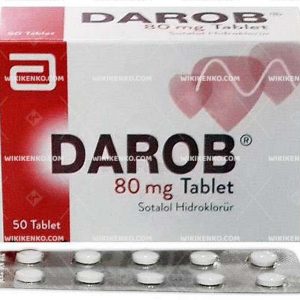
Doxtu Iv/Intravesikal Konsantre Infusion Solution Iceren Vial 50 Mg
Cancer, an adversary that affects millions worldwide, demands an arsenal of innovative treatments. DOXTU, a medication fortified with doxorubicin hydrochloride, stands as a steadfast contender in the realm of chemotherapy. This article delves into the intricacies, its application, potential side effects, and the intriguing realm of intravesical therapy.
| Dosage form | |
|---|---|
| Pack size | |
| Potency | 50 Mg/25Ml |
| Manufacturer | |
| Origin | |
| Generic Name (Ingredient) | Each Vial Of 25 Ml Contains 50 Mg Of Doxorubicin Hydrochloride. |
Assuming your emergency circumstances for this product, visit Urgent Quotation page. Besides, for any pharmaceutical questions, please ask us in the comments section.
Description
What is DOXTU and its Purpose?
DOXTU, a harbinger of hope for those grappling with cancer, belongs to the cytotoxic drugs cohort. These agents are the vanguards of chemotherapy, a robust combatant against cancer cells. DOXTU orchestrates its magic by halting the rapid proliferation of these malignant entities, ultimately orchestrating their demise.
Crucially, it orchestrates this destruction with precision, selectively sparing healthy tissue. This therapeutic approach extends its benefits to both adults and children.
DOXTU’s versatility shines as it confronts a myriad of cancer types. Tailoring its action to the specifics of each condition, it emerges victorious against diverse neoplastic diseases. From breast and lung cancer to thyroid and ovarian malignancies, its influence spans across the spectrum.
This medication’s triumphs cascade over bone and soft tissue sarcomas, Hodgkin’s and non-Hodgkin’s lymphomas, neuroblastoma, Wilms’ tumor, acute lymphoblastic leukemia, and acute myeloid leukemia. The cherry on top is its efficacious role in intravesical administration, particularly in treating superficial bladder tumors.
Prerequisites and Considerations
However promising DOXTU might be, certain caveats deserve attention. This medication is not suitable for individuals with severe hypersensitivity to DOXTU, anthracycline or anthracenedione derivatives, or its constituents.
Low blood cell counts, previous exposure to analogous chemotherapy drugs, severe heart or liver issues, urinary tract infections, bladder inflammation, and tumors are amongst the conditions that should preclude it usage. Rigorous adherence to usage instructions is paramount, with individualization of treatment underlining its significance.
Unveiling the Administration
DOXTU’s administration is a tailormade affair contingent on the type of cancer targeted. Dosages and treatment duration are precisely sculpted by medical practitioners, keeping patients’ unique requirements at the forefront. Following these guidelines to the tee is crucial to ensure optimal outcomes.
Side Effects
Much like other medications, DOXTU isn’t devoid of side effects. While not universal, these side effects might necessitate medical intervention. Common occurrences include nausea, vomiting, hair loss, mouth sores, appetite loss, diarrhea, and pigment alterations in the skin and nails.
The stakes heighten when it comes to severe side effects encompassing cardiac and hepatic issues, as well as diminished blood cell counts. A vigilant eye for these symptoms is crucial, warranting timely consultation with healthcare providers.
Storage
DOXTU’s efficacy hinges on meticulous storage as delineated by the manufacturer’s guidelines. Shielding this potent medication from the grasp of children is a non-negotiable safeguard.
DOXTU’s Intriguing Intravesical Intricacies
Intravesical therapy, an enigmatic endeavor, involves administering liquid drugs directly into the bladder via a catheter. Though literature on DOXTU’s intravesical application is limited, its counterparts like gemcitabine and docetaxel illuminate the landscape.
This approach circumvents collateral damage by confining the therapeutic impact to the bladder. Notably, intravesical therapy’s utility wanes as cancer advances beyond the bladder’s inner lining.
Conclusion
In the realm of oncology, DOXTU emerges as a knight in shining armor, armed with doxorubicin hydrochloride’s power. Its precision strikes against cancerous tissue with minimal harm to the normal. Prior to embarking on this therapeutic journey, meticulous assessment of prerequisites is crucial. While side effects may punctuate the voyage, their timely management and monitoring promise safer passage.
Its role in intravesical therapy adds an intriguing layer to its narrative, harnessing modern medicine’s potential. Armed with this knowledge, individuals and medical professionals are better poised to navigate the intricate landscapes of cancer treatment.
Use the form below to report an error
Please answer the questions as thoroughly and accurately as possible. Your answers will help us better understand what kind of mistakes happen, why and where they happen, and in the end the purpose is to build a better archive to guide researchers and professionals around the world.
The information on this page is not intended to be a substitute for professional medical advice, diagnosis, or treatment. always seek the advice for your physician or another qualified health provider with any questions you may have regarding a medical condition. Always remember to
- Ask your own doctor for medical advice.
- Names, brands, and dosage may differ between countries.
- When not feeling well, or experiencing side effects always contact your own doctor.
Cyberchondria
The truth is that when we’re sick, or worried about getting sick, the internet won’t help.
According to Wikipedia, cyberchondria is a mental disorder consisting in the desire to independently make a diagnosis based on the symptoms of diseases described on Internet sites.
Why you can't look for symptoms on the Internet
If diagnoses could be made simply from a textbook or an article on a website, we would all be doctors and treat ourselves. Nothing can replace the experience and knowledge of specially trained people. As in any field, in medicine there are unscrupulous specialists, differences of opinion, inaccurate diagnoses and incorrect test results.




Reviews
There are no reviews yet.